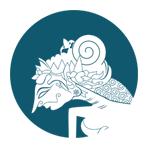Assessment Practices of Teachers Implementing the Philippines and Singapore Elementary Mathematics Curriculum
 Country:
Country:
(1) Southern Luzon State University Philippine Normal University,
This study compared the assessment practices of Filipino teachers in public schools implementing the national elementary mathematics curriculum with those in private schools implementing the Singapore mathematics curriculum in the Philippines,and provide inputs to the Philippine Elementary Mathematics curriculum based on the findings. The researcher used document analysis, interviews, and classroom observations determine their assessment practices of the participants.Triangulation was done to ensure data validity to fulfill the study's purpose. The results reveal that there are similarities and differences in the assessment practices of elementary teachers using Philippines and Singapore Elementary Mathematics curriclum. However, the study did not test if Filipino elementary learners differ in their performance in the national assessments given to all learners in public and private schools. Hence, the study recommended that future analysis be made on how Filipino elementary learners differ in their performance in mathematics, considering their differences in the curriculum they are exposed to.
Keywords: assessment practices, elementary mathematics teachers, Philippine elementary mathematics curriculum, Singapore elementary mathematics curriculum
Balagtas, M.U., Ngo, D.C., Belmi, R.M., Hibanada, R.R., Papango, M.C., & Baybayon, O.E.U.(2020). Directions and competencies set in international large scale-assessments: input to curriculum reform. Quezon City: Rex Institute for Student Excellence.
Balagtas, M. U., & Montealegre, MA. C. (Eds) (2020). Challenges of PISA: The PNU Report. Philippine Normal University and Rex Institute for Student Excellence, Inc.
Balagtas, M. U., Garcia, D. C. B., & Ngo, D. C. (2019). Looking through philippine's k to 12 curriculum in mathematics and science vis-a-vis timss 2015 assessment framework. Eurasia Journal of Mathematics, Science and Technology Education, 15(12).
Bennet, R.B. (2014). The effect of math in focus: the singapore approach on elementary students' mathematics achievement. Proquest
Black, P. (2018). Helping students to become capable learners. European Journal of Education, 53(2), 144–159.
Black, P., &Wiliam, D. (2009). Developing the theory of formative assessment. Educ Asse Eval Acc 21, 5–31.
Bicer, N. (2016). An evaluation of pre-service turkish teachers' skills and knowledge regarding the preparation of worksheets for teaching turkish to foreigners. Educational Research and Review, 11(5), 164–173.
Cambell R. ,Goodman-Williams R., Feeney, H., & Fehler-Cabral, G. (2018). Assessing triangulation across methodologies, methods, and stakeholder groups: The joys, woes, and politics of interpreting convergent and divergent data. American Journal of Evaluation, 41(1), 125–144.
Cathcart, R. (2020). Thinking about evaluating one’s own work. Understanding and Working with Gifted Learners, 64–66.
Corbin, J., & Strauss, A. (2008). Basics of qualitative research (3rd ed.): Techniques and procedures for developing grounded theory. SAGE Publications, Inc.
David, A., & Sunga, C. T. G. (2016). Using collaborative formative assessments in enhancing students' understanding of concepts in grade 9 electron configuration. The Normal Lights, 82–97.
Department of Education (2013). K-12 Curriculum Guide.
Hargreaves, A. (2007). Sustainable leadership and development in education: creating the future, conserving the past. European Journal of Education, 42(2), 223–233.
Hope, J. (2022). Promote a campus culture where students with disabilities feel they belong. Disability Compliance for Higher Education, 28(2), 2–2.
Kaur, B. (2014). Mathematics education in singapore - an insider's perspective. Journal on Mathematics Education, 5(1).
Lee, H., Chung, H. Q., Zhang, Y., Abedi, J., & Warschauer, M. (2020). The effectiveness and features of formative assessment in US K-12 education: A systematic review. Applied Measurement in Education, 33(2), 124–140.
Lu, Y. (2022). The cfl classroom-based summative assessment. Assessing Learners’ Competence in L2 Chinese 二语汉语能力测试, 54–83.
Magno, C.(2015). Formative assessment: concepts, classroom practices, and contemporary techniques. https://www.slideshare.net/crlmgn/formative-assessment-45421442
Majid, S., & Chitra, P.K. (2013). Role of knowledge sharing in the learning Process. Literacy Information and Computer Education Journal, 1292-1298.
Marquez, C.(2020). 'Small percentage' of PH 5th graders proficient in math, reading, writing – study. https://globalnation.inquirer.net/192462/limited-small-percentage-of-grade-5-ph-children-proficient-in-math-reading-writing-skills-2019-study#ixzz6spkMW800
Mbatha, N., Tshotsho, N., Hammond, S., Bereda-Thakhathi, E., & Obi, U. . (2015). Nurse educators' experiences of assessment in a multi-campus nursing college in the eastern Cape Province, South Africa. African Journal for Physical Health Education, Recreation, and Dance, 21(2.1), 107–131.
Munna, A. S., & Kalam, M. A. (2021). Teaching and learning process to enhance
teaching effectiveness: Literature review. International Journal of Humanities and
Innovation (IJHI), 4(1), 1–4.
OECD (2019). PISA 2018 Insights and Interpretations. https://www.oecd.org/pisa/PISA%202018%20Insights%20and%20Interpretations%20FINAL%20PDF.pdf
Opitz M., E., Freesemann, O., Prediger, S., Grob, U., Matull, I., & Hußmann, S. (2017). Remediation for students with mathematics: an intervention study in middle school. Journal of Learning Disabilities, 50(6), 724-736.
Palinkas, L. A., Horwitz, S. M., Green, C. A., Wisdom, J. P., Duan, N., & Hoagwood, K. (2015). Purposeful sampling for qualitative data collection and analysis in mixed method implementation research. Administration and policy in mental health, 42(5), 533–544.
Peng, J., Quan, J. (“Jim”), Zhang, G., & Dubinsky, A. J. (2016). Knowledge sharing,
social relationships, and contextual performance. Business Intelligence, 1491–1506.
Rogers, K. C. (2013). Journal writing in a mathematics capstone course for prospective secondary teachers: future teachers making connections. PRIMUS Problems, Resources, and Issues in Mathematics Undergraduate Studies, 24(6), 465–479.
Seixas V., Smith B.,.Mitton, C. (2018). The qualitative descriptive approach in international comparative studies: using online qualitative surveys. International Journal of Health Policy and Management, 7(9), 778-781.
Sewagegn, A. A. (2019). A study on the assessment methods and experiences of teachers at an ethiopian university. International Journal of Instruction, 12(2), 605-622.
Shadiq, F. (2019). Examples of using the scientific approach in mathematics teaching and learning to help Indonesian students become independent learners. Southeast Asian Mathematics Education Journal, 9(1), 45–56.
Shen, Y. (2016). Research data sharing and reuse practices of academic faculty
researchers: A study of the virginia tech data landscape. International Journal of Digital
Curation, 10(2), 157–175.
Sornson, B. (2022). Without learning competency there can be no equity. Over-Tested and Under-Prepared, 34–38.
Sparck, E. M. (2018). Multiple-choice tests as learning events: the role of desirably difficult alternatives. ProQuest Dissertations Publishing
Woodland R., Lee , M. & Randall .J.(2013) A validation study of the Teacher Collaboration Assessment Survey, Educational Research and Evaluation, 19:5, 442-460,
Yazıcıoğlu, Özlem, & Pektaş, M. (2019). A comparison of the middle school science programmes in Turkey, Singapore and Kazakhstan. International Electronic Journal of Elementary Education, 11(2), 143–150.
Yorke, M.(2003). Formative assessment in higher education: Moves Towards Theory and enhancing pedagogic practice. Higher Education 45, 477–501.
Zhong, Y., & Guo, K. (2022). ‘they can do many things’: Rhymes as a pedagogical
tool. The Australian Educational Researcher.
No supplementary information available.
Refbacks
- There are currently no refbacks.

This work is licensed under a Creative Commons Attribution-ShareAlike 4.0 International License.
View My Stats






